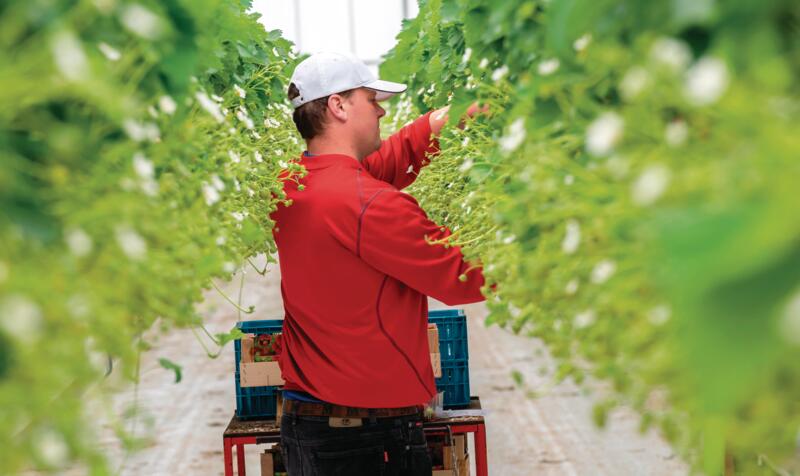TERMINATING an employee is never pleasant and for farmers, who often work closely with their team, it can be especially tricky, with emotions running high. Probably the most important thing to remember is not to act on the spur of the moment.
“Even if it’s obvious a worker has to go, sacking on the spot is never a good idea,” says NSW Farmers’ Workplace Relations director Gracia Kusuma, Business owners must follow
correct procedures, she stresses. With so many legal providers offering ‘no-win, no-fee’ services for unfair or unlawful dismissal cases, workers have nothing to lose in bringing an action.
 NSW Farmers’ Workplace Relations director Gracia Kusuma.
NSW Farmers’ Workplace Relations director Gracia Kusuma.
“It can be difficult knowing which way to go with employment laws,” explains one livestock owner, who does not want to be named.
“Our situation is particularly tricky because our managers live onsite and have families. You can’t just say, ‘Don’t come in on Monday.’ You have to be scrupulously fair and we want them to leave on the best terms possible – and yet we do need them to leave so we can get in another manager and make sure our livestock are being properly cared for.
“We give them an opportunity to improve themselves, but, if they’re unwilling, we’re left with no choice. If we’re having problems we always ask Gracia how to go about it so it works out for both parties,” he says.
It’s good to know that the agricultural industry’s claim rate for both
unfair and unlawful dismissals is one of the lowest. To ensure it stays that way, Gracia provides a few need-to-knows and case examples.
What constitutes unfair dismissal?
With unfair dismissal, the worker will argue they didn’t deserve to be sacked because the alleged contravention didn’t merit termination. Valid reasons for dismissal may include causing risk to health and safety, theft or continuous underperformance. But beware – even if the reason is undisputed, the worker can also claim that the process of their termination was unfair because no-one had told them there was a problem or they weren’t given the chance to respond. The maximum compensation for unfair dismissal is six months’ wages, capped at $74,350 (for 2019/2020).
What is a general protections claim?
With unlawful dismissal, formally known as a general protections claim, a worker claims their protected rights have been breached. This could mean
being discriminated against because of gender, age, pregnancy, religion or being temporarily absent because of sickness or injury. A worker may also claim general protections if they were sacked for exercising a workplace right such as joining a trade union or querying pay.
General protections claims are not as common as unfair dismissal claims, but there is an upward trend of general protections claims because they provide uncapped compensation, which means workers have better bargaining power to reach higher settlements.

Find out how
Trawalla pecan farm maintains a healthy staff culture. Photography by Robert Dunn.
How can I reduce the risk of worker claims?
Workers can’t make unfair dismissal claims within the first six months of their employment, or 12 months if employed by a small business. Within that period, it’s important to have regular meetings to review the performance of a new worker and decide whether they’re someone worth keeping.
Once termination of employment is a relevant consideration, NSW Farmers members should contact the Workplace Relations team to ensure the process in executing the termination is fair. If there are performance issues, the worker must have been notified in writing and given the opportunity to improve within a certain time frame and with appropriate training and mentoring if necessary.
It’s also important to check that any improvement targets set aren’t unreasonable or discriminatory, for example, because of the worker’s gender or age. Whatever the reason for the dismissal, the worker must have had the chance to explain themselves in a prearranged meeting where they can bring a support person should they wish. If a worker wants to make any claim, they must do so within 21 days of termination.
What should I do if I have a workplace legislation issue at hand?
Contact Workplace Relations to see if there’s a way of putting out the fire and examine any complications. When the employment relationship is no longer workable, it is hoped that there is already a paper trail of the issues to justify a termination. If there isn’t, the employer may want to consider paying an ex gratia amount as go-away money.
 The Fair Work Act 2009 and the Fair Work Regulations 2009 are the main legislation governing employee and employer relationship in Australia. Source: Alamy Stock Photo.
The Fair Work Act 2009 and the Fair Work Regulations 2009 are the main legislation governing employee and employer relationship in Australia. Source: Alamy Stock Photo.
If a claim is made, an initial process to try to settle the matter between the parties will be organised by the Fair Work Commission, either through phone conciliation or conciliation before a commissioner (depending on the type
of claim).
Case 1: Induction training dispute leads to an unfair dismissal claim
A worker was operating a telehandler. He picked up a heavy object in an incorrect manner, causing the machine to tilt forward. The worker had been inducted and trained to use the machinery and, after a meeting at which a support person was present, he was sacked.
However, he made an unfair dismissal claim, saying he hadn’t been appropriately trained and also that he had told his manager he wasn’t comfortable driving the telehandler.
A hearing with the Fair Work Commission was scheduled and Gracia became involved in the investigation. “We spoke to all individuals involved to find out who was present, who was driving
and whether the worker was appropriately trained,” she explains.
RELATED: Farm safety made a priority in NSW
When a claim is made, the employer must substantiate their account with evidence and witness statements. They can’t just jump to a conclusion based on perception. Gracia’s interviews revealed that there were discrepancies.
 Being a member of the NSW Farmers’ Association gets you access to workplace relations experts. Source: iStock.
Being a member of the NSW Farmers’ Association gets you access to workplace relations experts. Source: iStock.
“The worker had been inducted and did sign an induction form but there was dispute as to whether he was asked to drive the telehandler in the way he did,” she explains. “It was also unclear who was first to arrive at the incident site or whether the business had investigated thoroughly before terminating the worker.”
Following her interviews, Gracia told the owner of the business he didn’t have a strong case, so the claim was settled during conciliation and a sum of money paid out – about three weeks’ wages.
Case 2: Payout package leads to an unfair dismissal claim
A worker had indicated he was resigning, but as it had experienced difficulty in recruitment previously, the farming business persuaded the employee to stay – with the help of a more lucrative package. But the worker shared details of his improved offer with his colleagues and they demanded to know why they hadn’t also received this new package.
After a heated discussion, the worker was sacked for creating unrest in the workplace and subsequently made an unfair dismissal claim.
“Despite the employee breaching the business’ direction to keep details of his package confidential, he was given no warning, had no meeting with a support person and no opportunity to explain his side of the story,” says Gracia.
“We assisted him through conciliation and managed to settle with a money offer so the claim didn’t progress.”